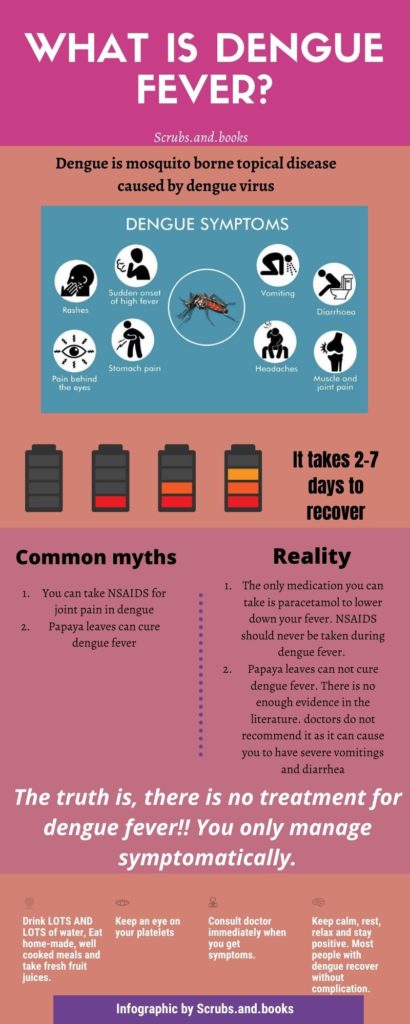Currently, hospitals in Pakistan are receiving a surge of cases of dengue fever. Unfortunately, September/October/November is usually monsoon season and this is when the dengue fever is mostly at its peak and so as a doctor, I would recommend each and every one of you to read a bit about it and know how you can keep yourself safe from the disease. Dengue fever is a mosquito-borne, tropical disease, caused by the dengue virus. It spreads through the bite of an infected mosquito and yes, you read it right, it’s a viral illness!
Symptoms of dengue fever

Symptoms of dengue fever usually begin 3 to 15 days after infection. These symptoms can include; high-grade fever, headache, joint pain, pain behind the eye, vomiting or nausea, and sometimes a skin rash too. These symptoms usually disappear after a week and sometimes, unfortunately, it can lead to some complications too. However, most people recover in about a week.
Dengue fever can also manifest with severe symptoms which include; dengue hemorrhagic fever and dengue shock syndrome.
Symptoms of dengue hemorrhagic fever include; bleeding from the mouth, gums, and nose. It can also cause internal bleeding and black tarry stools. without timely intervention dengue, hemorrhagic fever can be absolutely fatal.
How to treat dengue fever?
Sadly, there is no specific treatment for dengue fever. You can only prevent it by avoiding mosquito bites, wearing full-length clothing, and using insect repellent.
However, If you have any of these symptoms immediately see your health care provider. Rest as much as possible. Take plenty of fluids and stay hydrated. You can take acetaminophen only for fever and pain but DO NOT take NSAID, ASPRIN, OR IBUPROFEN.
Myth Buster:
Juice of Papaya Leaves makes dengue fever go away!
Umm… NO! Sorry to break this to you but dengue fever can not be treated with papaya leaf juice. The best it will do is it will end up giving you severe vomiting or diarrhea and make the illness absolutely worst for you. Current literature has no evidence proving it hence as physicians we do not recommend it.
Keep yourself safe this Monson season and have a great day!
